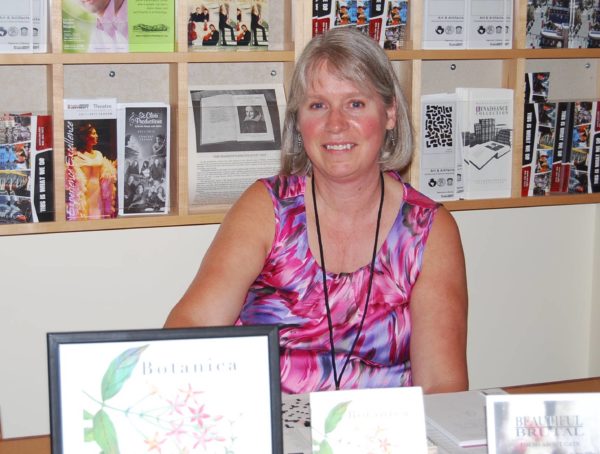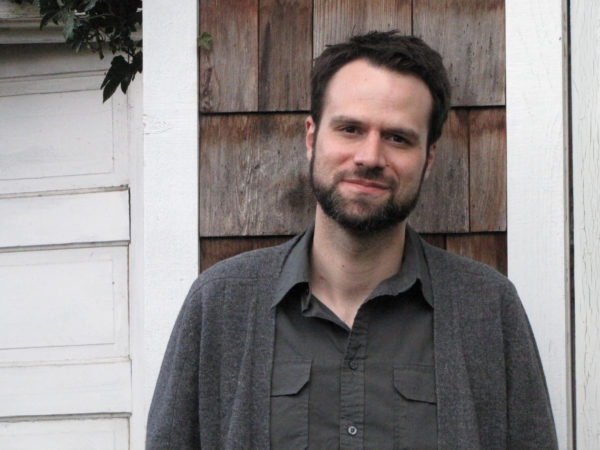Cultural Weekly empowers creativity only because it is empowered by you. This piece featuring the winners of the Jack Grapes Poetry Contest was originally published last month – October 2016. It is one of 100 reasons why we ask you to support our efforts. By considering a tax-deductible donation to support our collective cultural conversations. Thank you!
[divider ]DONATE NOW[/divider]
The 2016 Cultural Weekly Open Submission period, featuring the Jack Grapes’ Poetry Prize, has ended. The winners and finalists decided. All the poems were read blind, ie: the poet’s name was removed from the poems and substituted with a number. All poems were read in their entirety.
This year, 554 poems were submitted. From them, three winners, and five finalists were selected. They are:
1st Prize: AMY MILLER: “You Are Love and Light”
2nd Prize: JOHN SIBLEY WILLIAMS: “A Brief History of Astronomy”
3rd Prize: LORENA ALVARADO: “paradise is far from the freeway”
The five finalists, in alphabetical order:
Sonia Greenfield: “Abuser’s Credo”
Elizabeth Hoover: “Modern Architecture”
Lynn Houston: “The Long Haul”
Elaine Mintzer: “Catfish”
Rebecca Schumejda: “How a Pinhole Camera Works”
Thank you to everyone who entered. Next year’s contest, (July 1st – August 31st, 2017), promises to be even more spectacular. So stay tuned!
Alexis Rhone Fancher
Poetry Editor
Cultural Weekly
***
“You Are Love and Light” by Amy Miller
handwritten sign on a laundromat wall
You are also that crazy jitterbrained fuck
they called the cops on, loud and scared
and pulling your love on its tangled cord
right up out of your throat and hurling it straight
at that small woman when you hissed
You stole my sweatshirt, the good one.
The sign on the other wall,
Be kind and forgiving,
this was for me. It was not
for the tall man
who did his Jesus best
to talk you off the roof
your brain was walking. Also not
for the cop whose radio
pinned to his shoulder said
these visions were old
and he had only to quell them
down to quiet talk that would not
make the news tonight.
It was for me, forgiving, as I stood against
the washer and tried not to think how drunks
come out at four, something about Oprah
or the end of Magnum, P. I. or some other
comforting greenbacked bull choking
every satellite dish in the trailer park. It is not
for the mother with three kids or the college
couple mingling their underwear.
No, kind, this was for me
as I skirted the raggled
mess of you, even your eyes
at odds, blinking and unblinking
and not quite taking in
the cop, his shuttered gun,
the manager (who knows
the cant and whine of every
unbalanced machine) and me,
sidling my basket out the door
and trying not to fuel
the spell of all of our wild
intimate unraveling.

Amy Miller’s poetry has appeared in Bellingham Review, Nimrod, Rattle, Tinderbox, Willow Springs, and ZYZZYVA. She won the Cultural Center of Cape Cod National Poetry Competition, judged by Tony Hoagland, and has been a finalist for the Pablo Neruda Prize and the 49th Parallel Award. Recent chapbooks are Rough House (White Knuckle Press) and I Am on a River and Cannot Answer (BOAAT Press, forthcoming). She works as the publications manager for the Oregon Shakespeare Festival and blogs at writers-island.blogspot.com.
[divider ]DONATE NOW[/divider]
“A Brief History of Astronomy” by John Sibley Williams
In this land of giants and gods
and forgetting, it helps to stipple
your parents into the noon sky, well
before they dissolve, so later they’ll
poke through as stars. It helps to sing
out over a quieting November lake.
Or scream. Or bring yourself, finally,
to pray. Even if there is ice in your voice.
My brother showed me the best time
to strangle an angel is just before the miracle
is fully realized. Those spare seconds
when the world filling in around you seems
small enough to fit in your pocket.
He would take it with him everywhere.
Like a picture of someone he never quite loved
but cannot unremember. I’m trying
to keep him buried here, in this deep
denim alcove, swaddled in lint and loose
change. I don’t know how to spend him.
If the angel is still breathing, he used to say,
use a knife. Or stone. But how to tell
if these are my parents breaking
brightly through night or just another
family of miraculous, nameless lights.

John Sibley Williams is the editor of two Northwest poetry anthologies and the author of nine collections, including Disinheritance and Controlled Hallucinations. A five-time Pushcart nominee and winner of the Philip Booth Award, American Literary Review Poetry Contest, Nancy D. Hargrove Editors’ Prize, Confrontation Poetry Prize, and Vallum Award for Poetry, John serves as editor of The Inflectionist Review and works as a literary agent. Previous publishing credits include: The Midwest Quarterly, The Massachusetts Review, Poet Lore, Columbia Poetry Review, Mid-American Review, Third Coast, Baltimore Review, Nimrod, RHINO, and various anthologies. He lives in Portland, Oregon.
*
“paradise is far from the freeway” by Lorena Alvarado
In memory of Michelle L. and Bree’Anna G., young Latinas from Lincoln Heights
paradise is far from the freeway— Far from the highway exits and entrances, far from apartments overlooking the 5, far from the underpasses where women and men sleep, far from the CVS pharmacy at midnight, far from traffic lights beaming red, red, red; far from the hum of passing cars and cat calls. Paradise is far from the mute communicators of crisis lying on the shoulder of freeways: newspapers, empty soft drink bottles, dry shrubs.
the contents of plastic bags everywhere—Keep out of the reach of children. These bags skitter along empty parking lots like purgatory souls. They hold trash and carry our lunches. Groceries. Your face, your hands, your hair, do not belong there.
the different levels of justice— Justice refuses to look at our mothers. Justice refuses to clarify the crimes against their daughters. Justice does not visit our streets: Soto and State, Broadway and Lincoln, Avenue 26th. Justice loiters, looking beautiful. Where are the assemblies, the search committees, the witnesses, the closed palaces of justice? Who shall open their doors?
matching tattoos—the one you share with your mother. We saw Bree’Anna’s tattoos from the corner of our eye. Many of us are suspicious of young women with pierced lips, giving birth, or walking at night to the Rite Aid in Lincoln Heights. There are different levels of guilt, too.
getting lost—Among paparazzi and fashion reports, among interviews that are quiet tools of carnage, among weather reports that show more cleavage than climate, among breaking news that do not matter the next minute: I see your image.
loves to bake—Bree’Anna was a chef at twenty-two. She meshed flour and sugar with her hands, singing along to Nicki Minaj. She decorated the finished cupcake slowly making shapes, swirls, her large brown eyes focused. Now closed.
loves to walk—Mama, I’ll be right back. I’m going for a walk. Let me get my sweater cuz it’s a little cold. I need to unwind a little, listen to my music. Sit at the back of the bus down Figueroa, and meet my love.
forever 21—I can see your pink bag in the background of your photograph. They have affordable accessories that hide the details of their making. Plastic bangles that last forever are the only witnesses to the crime against you.
the fur of a gentle cat—How do we hold the delicate lives around us, how close are they to our bodies? With what world did you want to share the recent photograph of you holding a cat?
She has my name—and she lives in my street. If you ask for her, you ask for all of us.

Originally from Huntington Park, California, Lorena Alvarado is a visiting scholar at Rice University, where she researches and writes on Latino studies, gender and performance. Her poetry chapbook, red line lullaby, will be published Fall 2016.
[divider ]DONATE NOW[/divider]
(Featured photo of Amy Miller by Maureen Flanagan)

